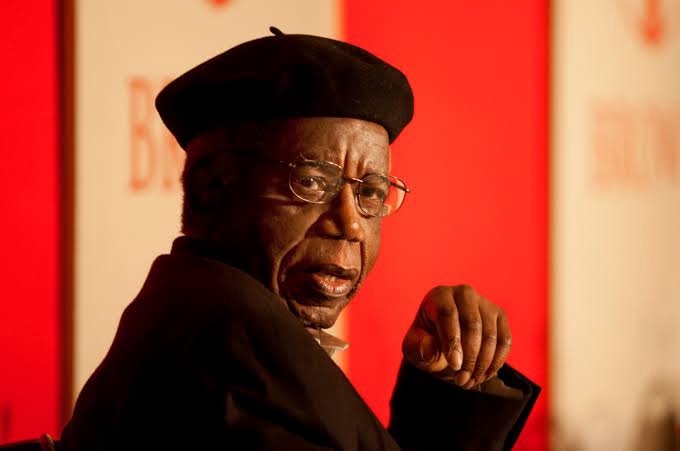One of his proud statements: “The trouble with Nigeria is simply and squarely a failure of leadership”.
Early Life and Education:
Chinua Achebe was born on November 16, 1930, in Ogidi, Nigeria, into an Igbo family. He grew up in a Christian household but was deeply influenced by Igbo traditions. Achebe attended Government College, Umuahia, and later studied English, History, and Theology at University College, Ibadan (now the University of Ibadan).

Literary Career:
Achebe’s groundbreaking novel, Things Fall Apart (1958), is one of the most influential books in African literature. It portrays the clash between traditional Igbo society and British colonial rule through the tragic story of Okonkwo. The novel has been translated into over 50 languages and has sold millions of copies worldwide.
He followed up with other acclaimed novels, including:
• No Longer at Ease (1960) – A sequel to Things Fall Apart, exploring post-colonial Nigeria.
• Arrow of God (1964) – Focuses on religious and political conflicts in pre-colonial Nigeria.
• A Man of the People (1966) – A satirical novel about corruption in Nigerian politics.
• Anthills of the Savannah (1987) – A finalist for the Booker Prize, exploring dictatorship and power.
Achebe also wrote essays, short stories, and children’s books, using his work to challenge colonial narratives and elevate African perspectives.
Political Involvement and Activism:
During the Nigerian Civil War (1967–1970), Achebe supported the secessionist state of Biafra, serving as an ambassador and using his writing to raise awareness of the humanitarian crisis. His political stance led to tensions with the Nigerian government, and he spent years in self-imposed exile in the United States.
Later Life and Legacy:
Achebe continued teaching and writing, holding academic positions at universities like Brown University and Bard College in the U.S. He received numerous awards, including the Man Booker International Prize (2007).
In 2012, he published his memoir, There Was a Country, a personal and historical account of the Biafran War.
Chinua Achebe passed away on March 21, 2013, at the age of 82. His influence remains strong, shaping African literature and global discussions on colonialism, identity, and tradition.
Legacy:
Achebe is celebrated as the “father of modern African literature”, inspiring generations of writers such as Chimamanda Ngozi Adichie. His works continue to be studied worldwide, and his impact on African storytelling remains unmatched.





